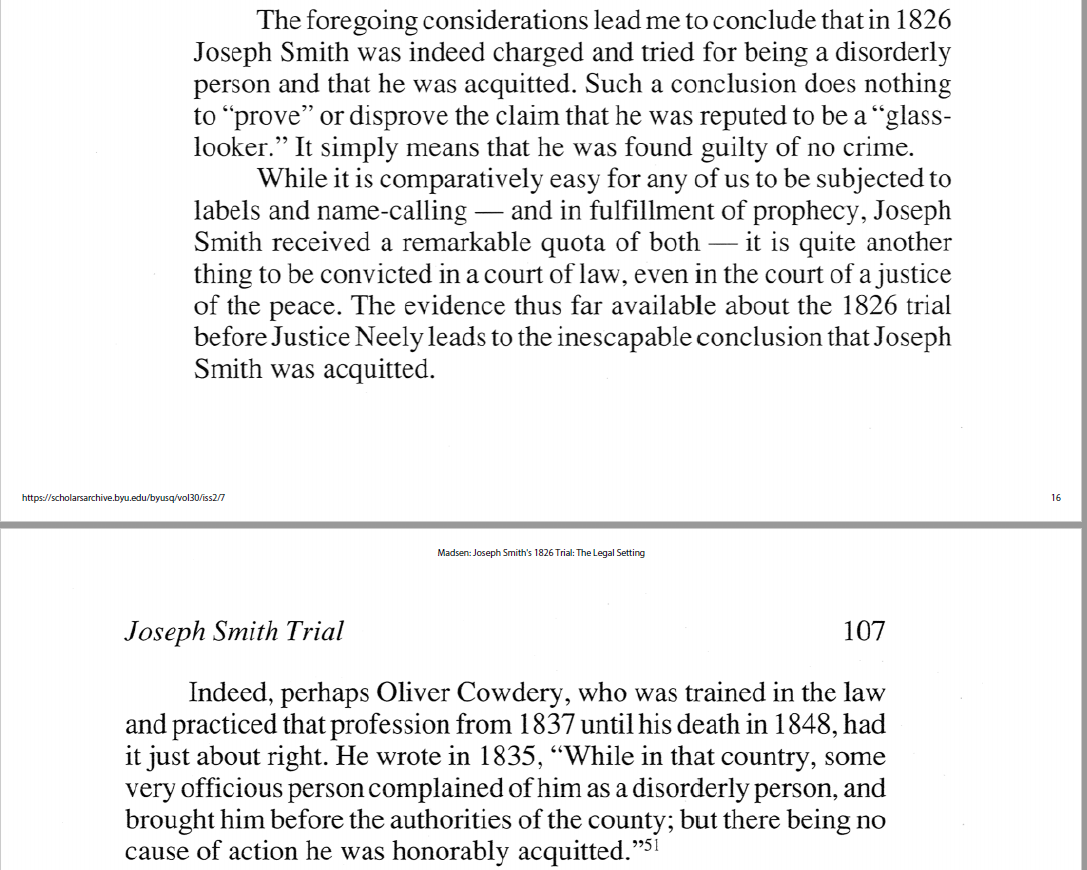Gordon A. Madsen's 1990 article arguing Joseph had a hearing, not trial, and was not convicted in 1826.
- Type
- Academic / Technical Report
- Source
- Gordon A. Madsen LDS
- Hearsay
- Secondary
- Reference
Gordon A. Madsen, "Joseph Smith's 1826 Trial: The Legal Setting," BYU Studies 40, no. 2 (1990): 91-108
- Scribe/Publisher
- BYU Studies
- People
- Gordon A. Madsen, Josiah Stowell, Joseph Smith, Jr., Philip M. De Zeng, Oliver Cowdery, William D. Purple
- Audience
- Latter-day Saints, Reading Public
- Transcription
The foregoing considerations lead me to conclude that in 1826 Joseph Smith was indeed charged and tried for being a disorderly person nad that he was acquitted. Such a conclusion does nothing to "prove" or "disprove" the claim that he was reputed to be a "glass-looker." It simply means that he was found guilty of no crime.
While it is comparatively easy for any of us to be subjected to labels and name-calling—and in fulfillment of prophecy, Joseph Smith received a remarkable quota of both—it is quite another thing to be convicted in a court of law, even in the court of a justice of the peace. The evidence thus far available about the 1826 trial before Justice Neely leads to the inescapable conclusion that Joseph Smith was acquitted.
Indeed, perhaps Oliver Cowdery, who was trained in the law and practiced that profession from 1827 until his death in 1848, had it just about right. He wrote in 1835, "While in that country, some very officious person complained to him as a disorderly person, and brought him before the authorities of the country; but there being no cause of action he was honorably acquitted."
- Citations in Mormonr Qnas
The B. H. Roberts Foundation is not owned by, operated by, or affiliated with the Church of Jesus Christ of Latter-day Saints.

